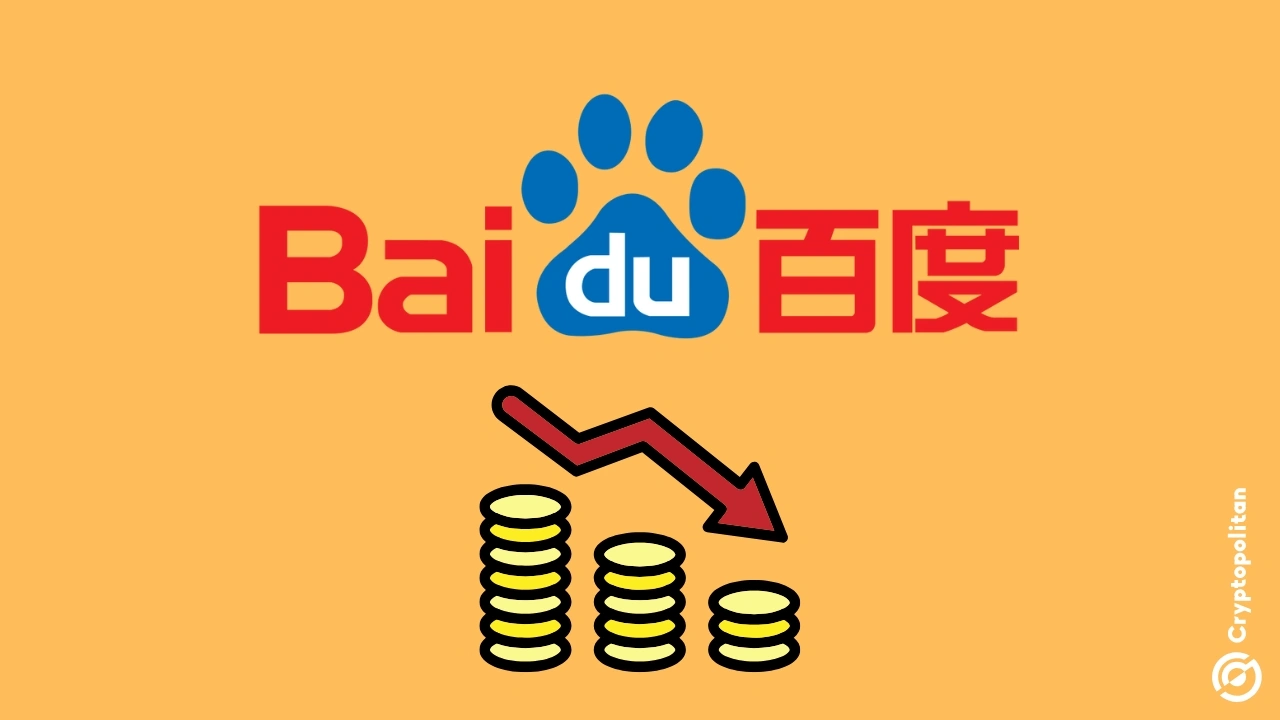
Chinese tech giant Baidu recorded its worst quarter in more than 24 months as the country’s economy was not conducive to Baidu’s push into generative AI.
For the quarter ending September, Baidu saw its revenue drop by 3% to $4.6 billion which was in tandem with the projections analysts had made. The tech company’s shares resultantly lost more than 3% in pre-market trading in US trading after its net income closed the period at 7.6 billion yuan.
Baidu banks on Ernie AI model for revival
The quarter has been a revelation to Baidu, that its strategy for AI growth has so far failed as results came in dampened. However, all is not lost for the tech company as it now banks its revival in the technology on its Ernie AI model, which is now handling 1.5 billion daily queries.
There is hope that Ernie model can become a game changer for businesses like search and the cloud. The downside of the project is that it will definitely take time for it to start realizing profits.
Baidu’s Ernie Bot has become the second most used bot in China, falling behind ByteDance’s Doubao. In the same time, Baidu the social media platform that is their core business is losing steam to the latest social platforms such as Xiaohongshu and Douyin.
The tech company is said to be a pioneer in the area of autonomous vehicles and this is where its much broader effort is being channeled.
During the presentation of the results, Baidu said it has started operating the new version of the Apollo Go driverless taxis in several cities, taking the cheaper model beyond the testing stage.
Baidu says driverless cars account for 70% of its robotaxi
Cars without safety personnel behind the wheel, the full driverless vehicles are said to be accounting for 70% of the tech company’s robotaxi rides across the country.
With its key advertisers spanning from the automaker industry to real estate, the economic downturn of the Chinese economy makes Baidu one of the most vulnerable companies.
After posting mixed results last week, Baidu’s rivals Tencent and Alibaba Group said they saw some improvement in the economy, but both avoided giving a forecast on when the economy will likely take hold of the rebound.
Talking to analysts on a call, long-time CFO Luo Rong who began a new role as Baidu’s head of mobile ecosystem said: “So far in Q4, we have not observed a notable improvement in advertisers’ spending patterns and consumer spending remains subdued.”
“Having said that, we are particularly encouraged by the strength and timeliness of recent stimulus policies which continue to be rolled out.”
Rong.
The tech company has failed to hold on to the lead it had as it had a head start in the Chinese AI sphere, but it is losing its grip on leadership. Baidu is facing a fierce price war with other AI infrastructure providers to entice more developers and startups as customers.
This is above the company having the most popular AI chatbot anymore. The competition was mirrored in the third quarter results as the tech company saw its biggest growth engine, generative AI products, slow down despite contributing a bigger 11% of cloud revenue.
“Despite the near-term pressures, we remain steadfast in our AI-focused strategy and are confident in our long-term trajectory,” Baidu founder Robin Li said in a statement.
“Baidu is not aiming to launch a super app, instead we aim to help more people and businesses create millions of super useful applications.”
Baidu revealed its new AI smart glasses, a product closer to the Meta’s Ray-Bans and the tech company said they will be available for sale within the first six months of 2025.
From Zero to Web3 Pro: Your 90-Day Career Launch Plan









